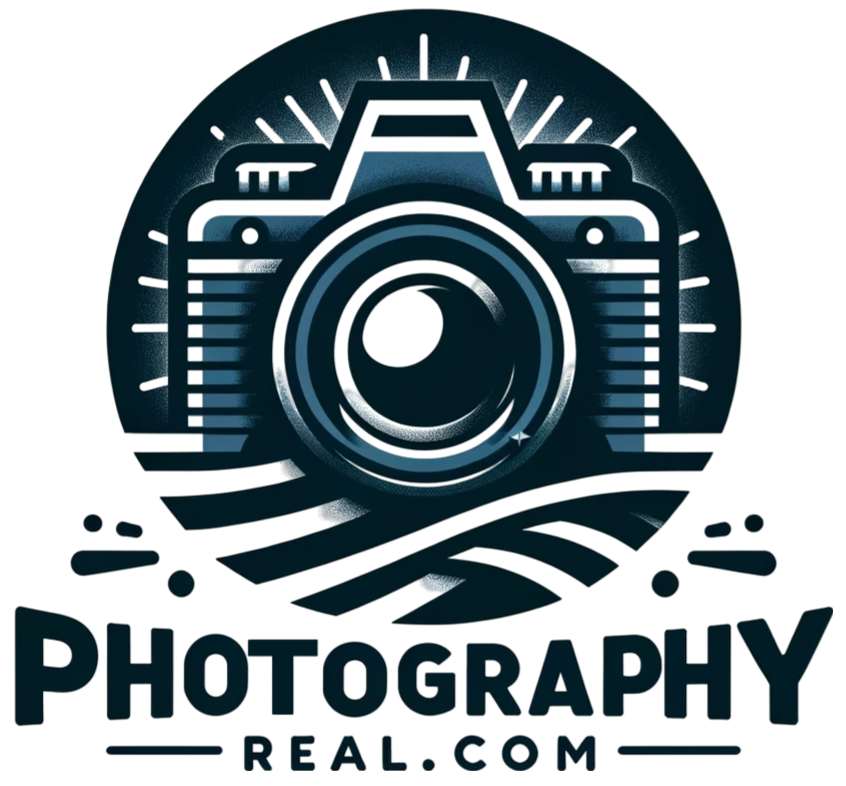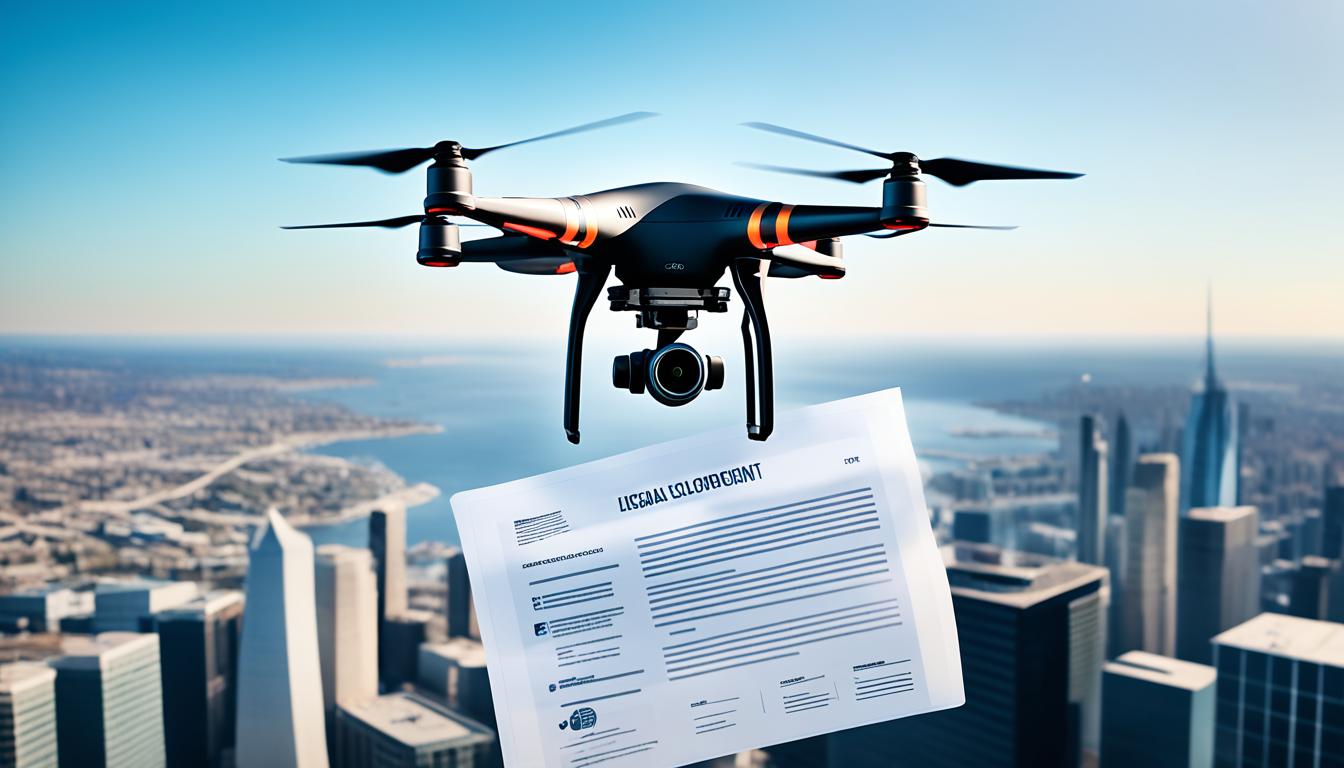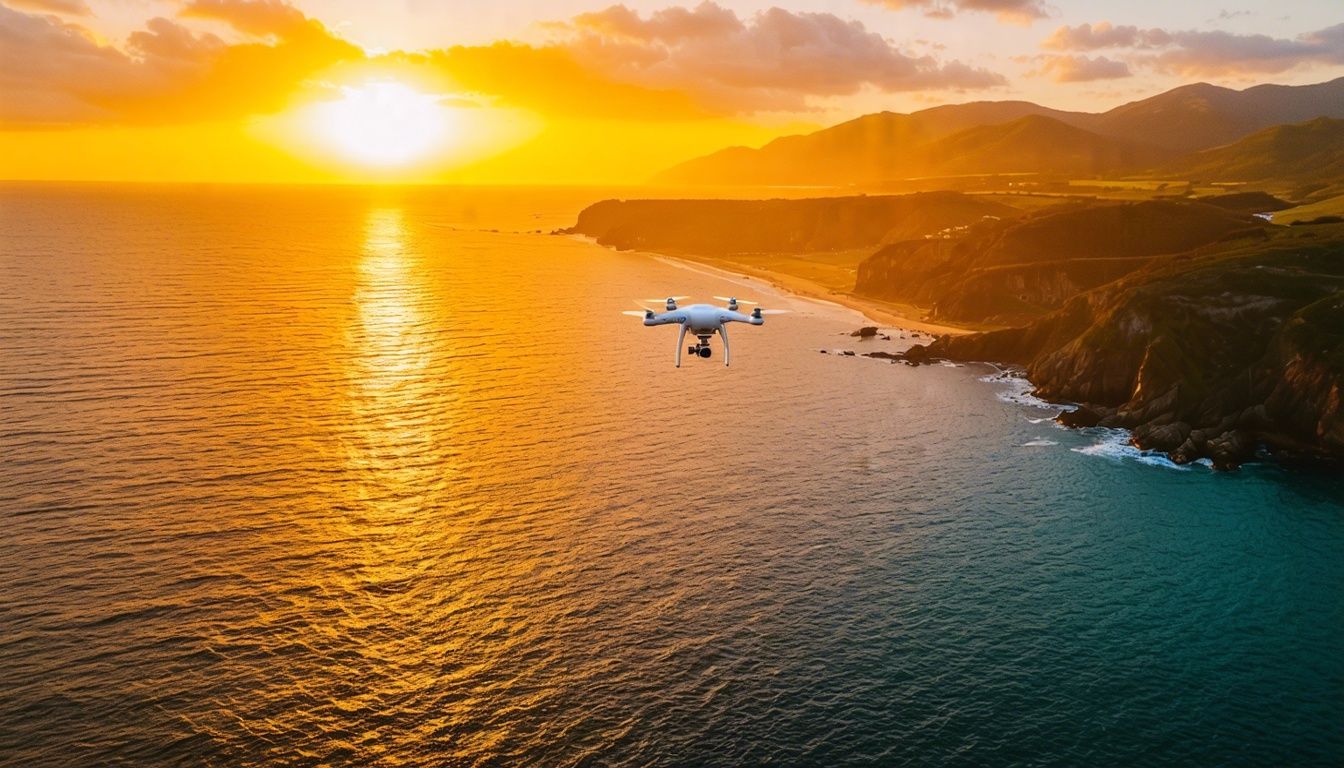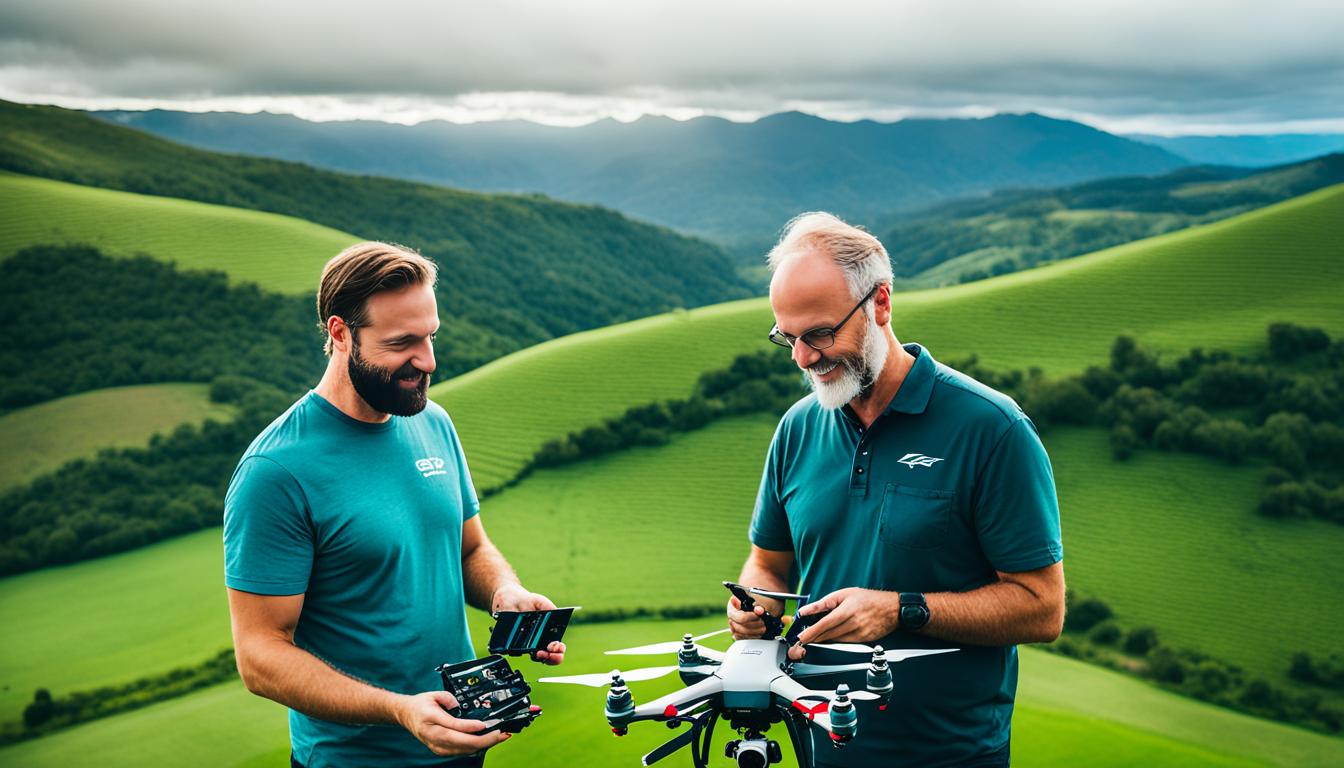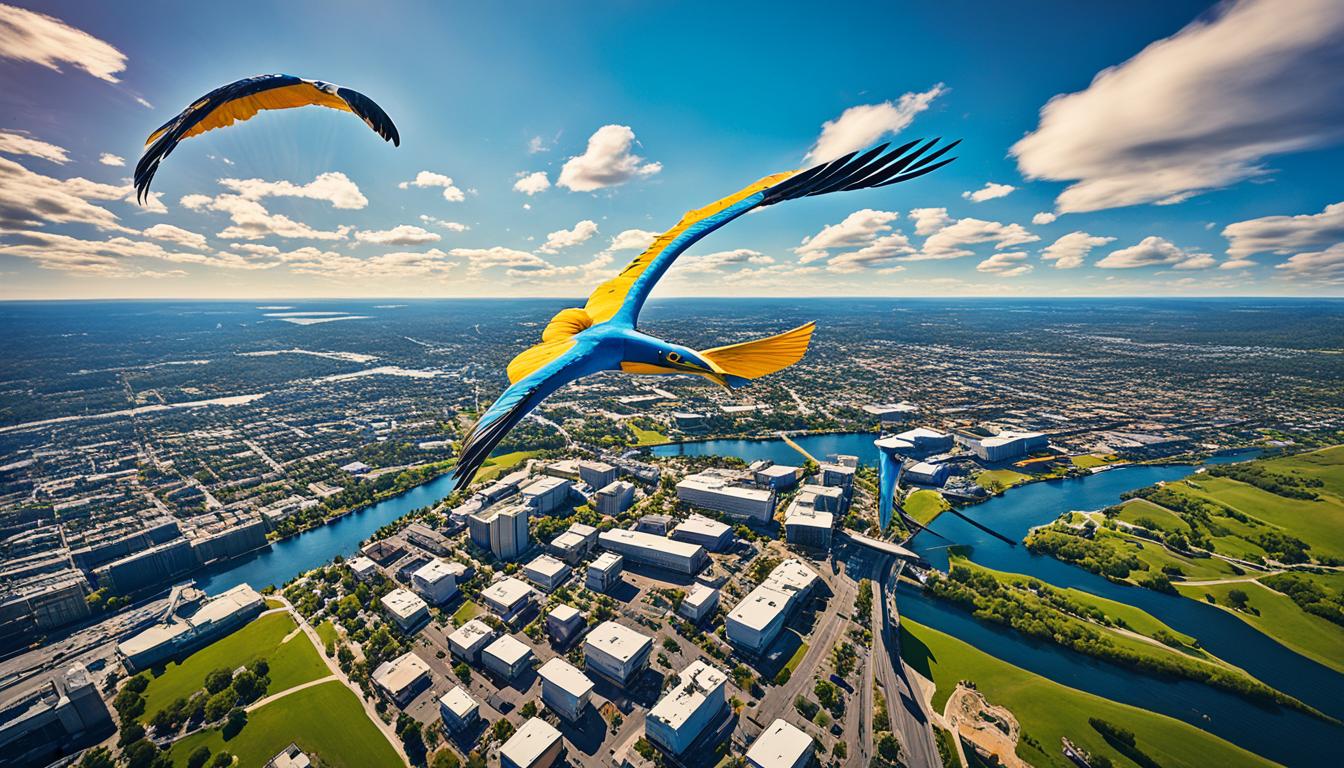Drone photography has revolutionized the real estate industry, offering unique aerial perspectives that can showcase properties and attract potential buyers. However, navigating the legal framework surrounding drone photography can be complex. At the federal, state, and local levels, there are specific laws and regulations that real estate agents must understand and adhere to in order to ensure legal compliance.
The Federal Aviation Administration (FAA) governs drone operations at the federal level, and their regulations, known as Part 107, outline requirements and restrictions for commercial drone use. Additionally, state and local laws may impose further regulations on drone operations. It is essential for real estate agents to stay informed about these laws and any changes in regulations to maintain compliance.
To ensure legal compliance in drone photography, realtors should consider the certifications and licenses of drone photographers. They must also understand the importance of securing permissions and permits for drone photography sessions. By staying informed and following the necessary legal requirements, real estate agents can fully leverage the power of drone photography while avoiding potential legal issues.
Key Takeaways:
- Understanding federal, state, and local drone regulations is crucial for legal compliance in drone photography.
- The FAA’s Part 107 regulations govern commercial drone use at the federal level.
- Real estate agents should stay informed about current laws and any changes in regulations.
- Certified drone photographers with the necessary licenses ensure compliance with legal requirements.
- Securing permissions and permits for drone photography is essential for legal compliance.
With a clear understanding of drone photography laws and regulations, real estate agents can confidently incorporate this powerful tool into their marketing strategies while sustaining legal compliance.
The Benefits of Drone Photography in Real Estate Marketing
Drone photography has become an indispensable tool in the real estate industry. With its ability to capture stunning aerial perspectives, it offers a unique advantage in property presentation and attracts potential buyers. The use of drones provides a captivating view of the property’s surroundings, showcasing features such as parks, lakes, or mountain views that enhance the property’s desirability.
By incorporating drone photography into real estate marketing materials, agents can create a powerful visual impact and make their listings stand out from the competition. Aerial shots allow potential buyers to appreciate the property’s external layout, offering a sense of spaciousness and providing an immersive experience that traditional photography cannot replicate.
Imagine showcasing a sprawling countryside estate with its vast acres and lush greenery from a bird’s-eye view, or highlighting a waterfront property with panoramic shots of shimmering waters and scenic coastlines. With drone photography, real estate agents can bring these captivating perspectives to life, making properties more visually appealing and enticing to potential buyers.
Both residential and commercial properties benefit from the aerial advantage that drone photography provides. Residential buyers can envision the potential of a property by seeing how it fits into its surroundings, while commercial buyers can evaluate the accessibility and visibility of a location from a strategic standpoint.
By leveraging aerial perspectives, real estate agents demonstrate their commitment to professionally marketing properties and provide a comprehensive view that helps potential buyers make informed decisions. The use of drone photography in real estate marketing showcases properties in a way that creates excitement and engagement, ultimately driving more interest and potential offers.
As the saying goes, a picture is worth a thousand words, and drone photography takes property presentation to a whole new level. With its ability to capture stunning aerial perspectives, it has become an essential tool for real estate agents who want to make a lasting impression on potential buyers and stay ahead in the competitive market.
| Benefits of Drone Photography in Real Estate Marketing | Keywords |
|---|---|
| Showcases property surroundings | aerial perspectives, property presentation |
| Enhances visual appeal | drone photography, real estate marketing |
| Provides a sense of spaciousness | aerial perspectives, property presentation |
| Highlights property layout | aerial perspectives, property presentation |
| Attracts potential buyers | drone photography, real estate marketing |
Understanding Federal Drone Regulations for Commercial Use
When it comes to commercial drone use in the real estate industry, it is essential for real estate agents to have a solid understanding of the federal drone regulations set by the Federal Aviation Administration (FAA). The primary regulation that realtors need to be familiar with is Part 107.
Part 107 outlines the legal requirements and restrictions that commercial drone operators must adhere to. By following these regulations, real estate agents can ensure compliance and avoid potential legal issues. Here are some key aspects of Part 107:
- Remote Pilot Certificate: To operate a drone commercially, real estate agents need to obtain a remote pilot certificate from the FAA. This certification demonstrates that operators understand the rules and regulations of drone operations.
- Flying within Visual Line of Sight: Part 107 stipulates that drone operators must maintain visual contact with their drones at all times during flight. This regulation ensures safety and prevents unauthorized drone activities.
- Airspace Restrictions and Altitude Limits: Part 107 also imposes restrictions on airspace and altitude for commercial drone operations. Operators must comply with these restrictions to ensure the safety of manned aircraft and other airspace users.
By understanding and abiding by these federal drone regulations, real estate agents can confidently incorporate drone photography into their marketing strategies, knowing that they are operating within the legal framework. Compliance with Part 107 not only ensures legal compliance but also promotes responsible and safe drone use in the real estate industry.
The Importance of Legal Compliance
Adhering to federal drone regulations is crucial for real estate agents utilizing drones for commercial photography. Failure to comply with these regulations can result in legal consequences, including fines and penalties. Additionally, non-compliance may lead to reputational damage and potential harm to the real estate business.
“Compliance with federal drone regulations is not just a legal requirement; it’s a responsibility that we take seriously to ensure the safety of our operations and protect the interests of our clients.”
At our agency, we prioritize legal compliance in all our drone photography endeavors. By staying informed about federal drone regulations and incorporating them into our standard practices, we provide our clients with a reliable and trustworthy service.
Additional State and Local Drone Regulations to Consider
Aside from federal regulations, it is crucial for real estate agents to be aware of and adhere to state and local laws that govern drone operations. Different states and local jurisdictions may have specific drone flight restrictions in place to ensure safety and privacy. To avoid legal complications and penalties, it is essential for real estate agents to research and understand these regulations before using drones for photography. Ignoring state and local drone regulations can have serious consequences, both financially and legally.
Understanding State Drone Regulations
State drone regulations refer to laws and restrictions imposed by individual states that govern the use of drones within their jurisdiction. These regulations can vary significantly from state to state, covering aspects such as flight restrictions, no-fly zones, and registration requirements. It is important for real estate agents to consult the official websites or resources provided by their state’s aviation authority or government to obtain accurate and up-to-date information on state-specific drone regulations. By familiarizing themselves with these regulations, real estate agents can conduct drone photography in compliance with the law.
Local Drone Regulations and Flight Restrictions
In addition to state regulations, real estate agents must also consider local drone regulations and flight restrictions. Local jurisdictions, such as cities or counties, may have their own set of rules and restrictions regarding drone operations. These regulations can include restrictions on flying drones in certain areas, obtaining permits for commercial drone use, and adhering to specific flight altitude limits. It is crucial for real estate agents to research and understand the local drone regulations within their operational area to ensure compliance and avoid running afoul of the law.
Staying up-to-date with changes in state and local drone regulations is vital for real estate agents who utilize drones in their photography. Being aware of any revisions or updates to these regulations will enable real estate agents to adjust their practices accordingly and maintain legal compliance.
Overview of State Drone Regulations and Flight Restrictions
| State | Flight Restrictions | Registration Requirements |
|---|---|---|
| California | No flying near airports or emergency response operations. | Must register drones weighing more than 0.55 pounds with the FAA. |
| Texas | No flying within a certain distance of correctional facilities. | Must register drones weighing more than 0.55 pounds with the FAA. |
| Florida | No flying over state parks or wildlife management areas without permission. | Must register drones weighing more than 0.55 pounds with the FAA. |
| New York | No flying over people or within a certain distance of stadiums during events. | Must register drones weighing more than 0.55 pounds with the FAA. |
It is important for real estate agents to consult the specific regulations for their state and local jurisdiction to ensure compliance. Failure to comply with state and local drone regulations can result in fines, legal trouble, and damage to one’s reputation.
By adhering to state and local drone regulations, real estate agents can conduct drone photography in a responsible and respectful manner, contributing to the overall safety and harmony of their communities.

Choosing Certified Drone Photographers for Legal Compliance
When it comes to real estate photography, hiring certified drone photographers is essential to ensure legal compliance and maintain a high level of quality in your marketing materials. Certified drone photographers have undergone training and obtained the necessary certifications, such as the Part 107 remote pilot certificate. This certification demonstrates their understanding of and ability to comply with the legal requirements and restrictions of drone photography.
By choosing certified photographers, you can trust that they have the knowledge to navigate the complex legal landscape of drone operations, including airspace regulations, flight restrictions, and safety guidelines. Their expertise not only ensures legal compliance but also contributes to the overall professionalism and quality of your real estate photography.
Vetting potential photographers is an important step in the hiring process. Request references and examples of their previous work, specifically showcasing their drone photography skills. This will give you an understanding of their experience and the quality of their work. Additionally, ensure that they possess the necessary certifications and licenses, such as the Part 107 certification, to provide further assurance of their legal compliance.
By investing in certified drone photographers, you can enhance the quality of your drone photography and maintain a responsible and compliant approach to real estate marketing.
Navigating the Process of Permissions and Permits for Drone Photography
Securing permissions and permits is vital to ensure legal compliance when engaging in drone photography. As realtors, we must establish clear communication channels with our chosen photographers to ensure they are fully aware of and capable of fulfilling all the necessary requirements.
Local regulations play a crucial role in drone photography, and it is our responsibility to understand and adhere to them. These regulations may include designated no-fly zones or specific requirements for permits and advanced notice. By familiarizing ourselves with these regulations, we can plan our drone photography sessions well in advance and ensure that we comply with all legal requirements.
Coordinating with all stakeholders is integral to conducting a successful and legally compliant shoot. By understanding the legal framework, securing the required permits, and collaborating with local authorities and property owners, we can navigate the process of permissions and permits with ease and confidence.
Ensuring Legal Compliance: Step-by-Step Guide
- Step 1: Research Local Regulations – Familiarize yourself with the drone regulations specific to your area. Identify any restrictions, permits, or advanced notice requirements that may be necessary for your drone photography sessions.
- Step 2: Obtain Permits and Permissions – Reach out to the appropriate authorities to secure the necessary permits and permissions. Provide all the required documentation and information, ensuring compliance with local guidelines.
- Step 3: Coordinate with Property Owners – If you plan to conduct drone photography on someone else’s property, seek explicit permission from the property owner. Establish clear communication regarding the timing, scope, and purpose of the photography session.
- Step 4: Communicate with Local Authorities – If your drone photography session may intersect with controlled airspace or designated no-fly zones, notify the relevant local authorities in advance. Obtain any additional permissions or clearances, if required.
- Step 5: Plan and Execute Responsibly – Create a detailed flight plan that adheres to all legal requirements and safety guidelines. Ensure that all participants in the shoot, including the drone pilot and any additional crew members, are fully aware of the plan and comply with it throughout the session.
By following these steps, we can navigate the process of securing permissions and permits for drone photography, ensuring legal compliance and responsible practices.
Tips for Smooth Permit Acquisition:
- Start Early: Begin the permit acquisition process well in advance of your planned drone photography session to allow for any potential delays or complications.
- Be Thorough: Ensure that you provide all the required documentation, follow the necessary procedures, and answer any questions or concerns from authorities promptly and accurately.
- Seek Professional Guidance: If you encounter any challenges or uncertainties during the permit acquisition process, consult with legal experts or professionals experienced in drone photography regulations to obtain the necessary guidance.
- Maintain Ongoing Compliance: Even after obtaining the required permits and permissions, continuously monitor local regulations for any updates or changes that may impact your drone photography activities.
Navigating the process of permissions and permits for drone photography is essential for maintaining legal compliance. By staying informed, adhering to local regulations, and securing the necessary permits, we can conduct drone photography sessions in a responsible and lawful manner, ensuring the success of our real estate endeavors.
Staying Informed about Drone Regulations for Ongoing Compliance
As drone regulations continue to evolve, it is imperative for real estate agents to stay informed and up-to-date to ensure ongoing compliance with the law. By staying informed, we can avoid potential legal issues and maintain the highest standards of professionalism in our drone photography practices.
There are several resources available to help us stay updated on drone regulations. Government websites, such as the Federal Aviation Administration (FAA) and local aviation authorities, provide valuable information on current laws and any changes or updates that may impact our drone photography operations. Industry associations, like the National Association of Realtors (NAR), often offer guidance and resources specific to real estate professionals working with drones.
In addition to online resources, it is important to establish open communication with drone photographers who are well-versed in current laws and regulations. Collaborating with experienced photographers who stay informed about industry updates and changes can greatly contribute to our ongoing compliance and success in drone photography.
Attending workshops, webinars, or training sessions focused on drone photography and the legal aspects surrounding it can further enhance our knowledge and keep us well-informed. These educational opportunities provide the latest insights into regulations, best practices, and emerging trends, enabling us to adapt and adjust our photography practices accordingly.
In summary, staying informed about drone regulations is vital for ongoing compliance and success in the real estate industry. By utilizing government resources, industry associations, and maintaining open communication with knowledgeable drone photographers, we can ensure that we are always up-to-date and operating within the boundaries of the law.
Now let’s take a look at a table summarizing some key resources to help us stay informed about drone regulations:
| Resource | Description |
|---|---|
| FAA Website | The official website of the Federal Aviation Administration provides comprehensive information on drone regulations, including Part 107 requirements and updates. |
| NAR Drone Resource Center | The National Association of Realtors offers a dedicated resource center with guidelines, best practices, and industry updates specific to drone usage in real estate. |
| Local Aviation Authorities | Check with your local aviation authorities for any specific regulations or updates that may apply to your area. |
| Drone Photographer Networks | Joining networks or forums specifically for drone photographers can provide valuable insights and updates from industry professionals. |

By utilizing these resources and continuously seeking knowledge, we can stay informed about drone regulations, ensuring our ongoing compliance and maintaining our position as knowledgeable and responsible real estate professionals.
Conclusion
Drone photography has truly transformed the real estate industry, providing captivating aerial perspectives that effortlessly capture the attention of potential buyers. However, it is of utmost importance for real estate agents to navigate the intricate web of legal compliance surrounding drone photography. By understanding and adhering to federal, state, and local regulations, selecting certified photographers, obtaining the necessary permissions and permits, and staying informed about evolving laws, agents can ensure legal compliance and unlock the full potential of drone photography in the real estate industry.
Through prioritizing legal compliance, real estate agents not only demonstrate responsible drone usage but also provide a higher level of service to their clients. Drone photography, when executed within legal boundaries, can offer a unique and visually stunning perspective that sets listings apart from the competition. By embracing responsible and informed drone usage, agents can stand out in the real estate industry and maximize the impact of their property marketing efforts.
As drone regulations continue to evolve, staying informed is key. Finding reliable sources such as government websites, industry associations, and legal experts can help agents stay abreast of any changes that may impact their drone photography practices. Attending workshops, webinars, or training sessions dedicated to drone photography and its legal aspects can further enhance knowledge and ensure agents remain up-to-date with the evolving regulatory landscape.
In conclusion, legal compliance in drone photography is essential for success in the real estate industry. By understanding the laws, engaging certified professionals, obtaining necessary permissions and permits, and embracing responsible drone usage, agents can harness the power of aerial perspectives to attract potential buyers, elevate their marketing efforts, and provide an exceptional level of service to their clients in the dynamic world of real estate.
FAQ
What are the legal requirements for drone photography in the real estate industry?
Drone photography in the real estate industry operates within a complex legal framework. At the federal level, the Federal Aviation Administration (FAA) governs drone operations. Commercial drone use is subject to regulations outlined in Part 107, which requires obtaining a remote pilot certificate, flying within visual line of sight, and adhering to airspace restrictions and altitude limits. State and local laws may impose additional requirements and restrictions.
How can drone photography benefit real estate marketing?
Drone photography offers unique aerial perspectives that can enhance real estate marketing. Aerial shots provide captivating views of a property’s surroundings, such as parks or lakes, showcasing its desirability. Aerial perspectives also offer a sense of spaciousness and allow potential buyers to appreciate the property’s layout both inside and out, making properties more attractive and memorable.
What are the federal regulations for commercial drone use?
The Federal Aviation Administration (FAA) regulates commercial drone use through Part 107. This regulation requires drone operators to obtain a remote pilot certificate, fly within visual line of sight, and comply with airspace restrictions and altitude limits. Familiarizing oneself with Part 107 is crucial for real estate agents using drones for photography.
Do state and local laws have an impact on drone photography?
Yes, state and local laws can impose additional requirements and restrictions on drone operations. Different states and local jurisdictions may have specific drone flight restrictions, such as no-fly zones or requirements for permits and advanced notice. Real estate agents must research and understand these regulations to ensure compliance when using drones for photography.
Why is it important to choose certified drone photographers?
Certified drone photographers have undergone training and obtained necessary certifications, such as the Part 107 remote pilot certificate. Hiring certified photographers ensures they understand and comply with the legal requirements and restrictions of drone photography. It also demonstrates a higher level of professionalism and quality in their work.
What is the importance of securing permissions and permits for drone photography?
Securing permissions and permits is essential to ensure legal compliance when conducting drone photography. Realtors must communicate with their chosen photographers to fulfill the necessary requirements, which can include seeking permits and complying with advanced notice regulations. Planning in advance and adhering to local regulations is integral to a successful and legally compliant shoot.
How can real estate agents stay informed about drone regulations?
Real estate agents can stay informed about drone regulations by regularly checking government websites, industry associations, and legal experts for updates and guidelines. Open communication with certified drone photographers who are knowledgeable about current laws is also important. Attending workshops, webinars, or training sessions on drone photography and its legal aspects can further enhance knowledge and ensure compliance.
What is the importance of legal compliance in drone photography?
Legal compliance in drone photography is essential to avoid legal issues, penalties, and reputational damage. By staying informed, adhering to federal, state, and local regulations, choosing certified photographers, and securing necessary permissions and permits, real estate agents can use drone photography to its full potential while providing a higher level of service to their clients.
How Can I Ensure I Am Compliant with Drone Photography Laws When Using Drones for Property Sales?
When looking to elevate property sales with drone photography, it’s crucial to understand and comply with drone laws. Ensure you are familiar with the regulations related to airspace, privacy, and registration. Always obtain proper permits and permissions when using drones for property sales to avoid legal issues.
